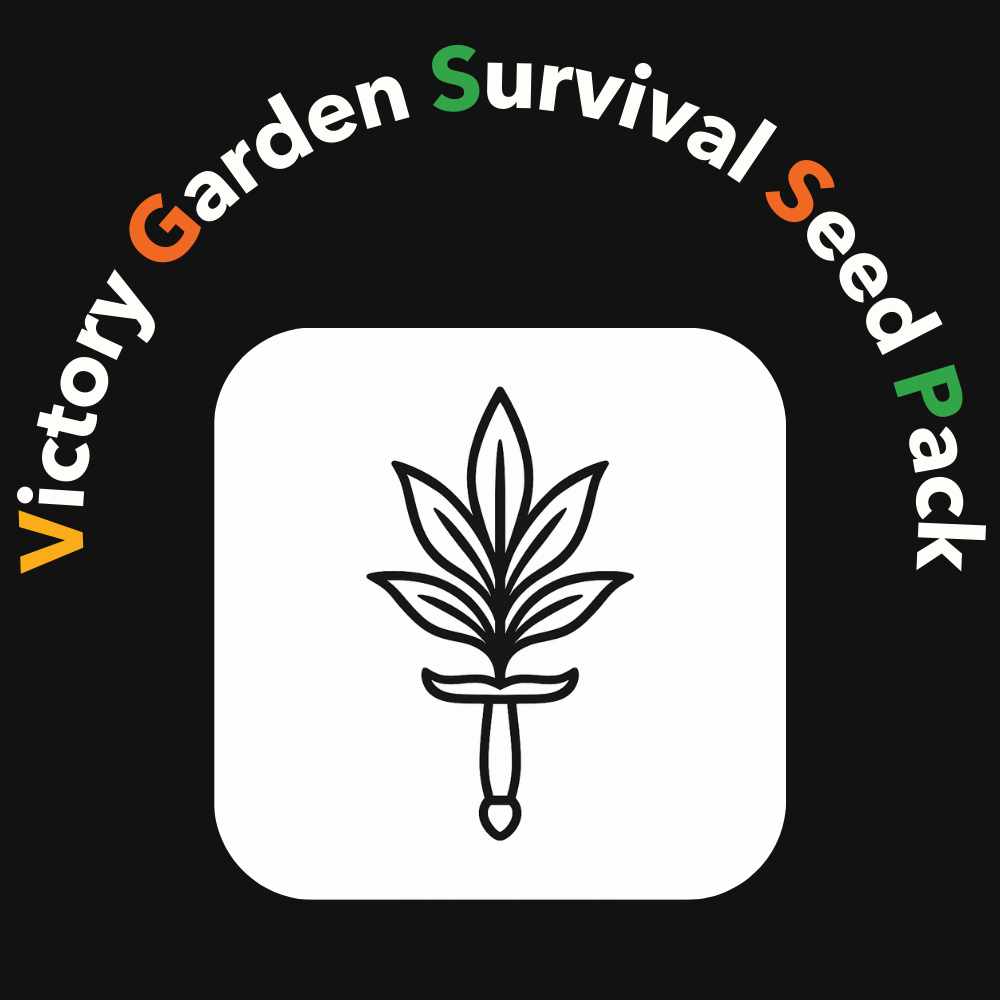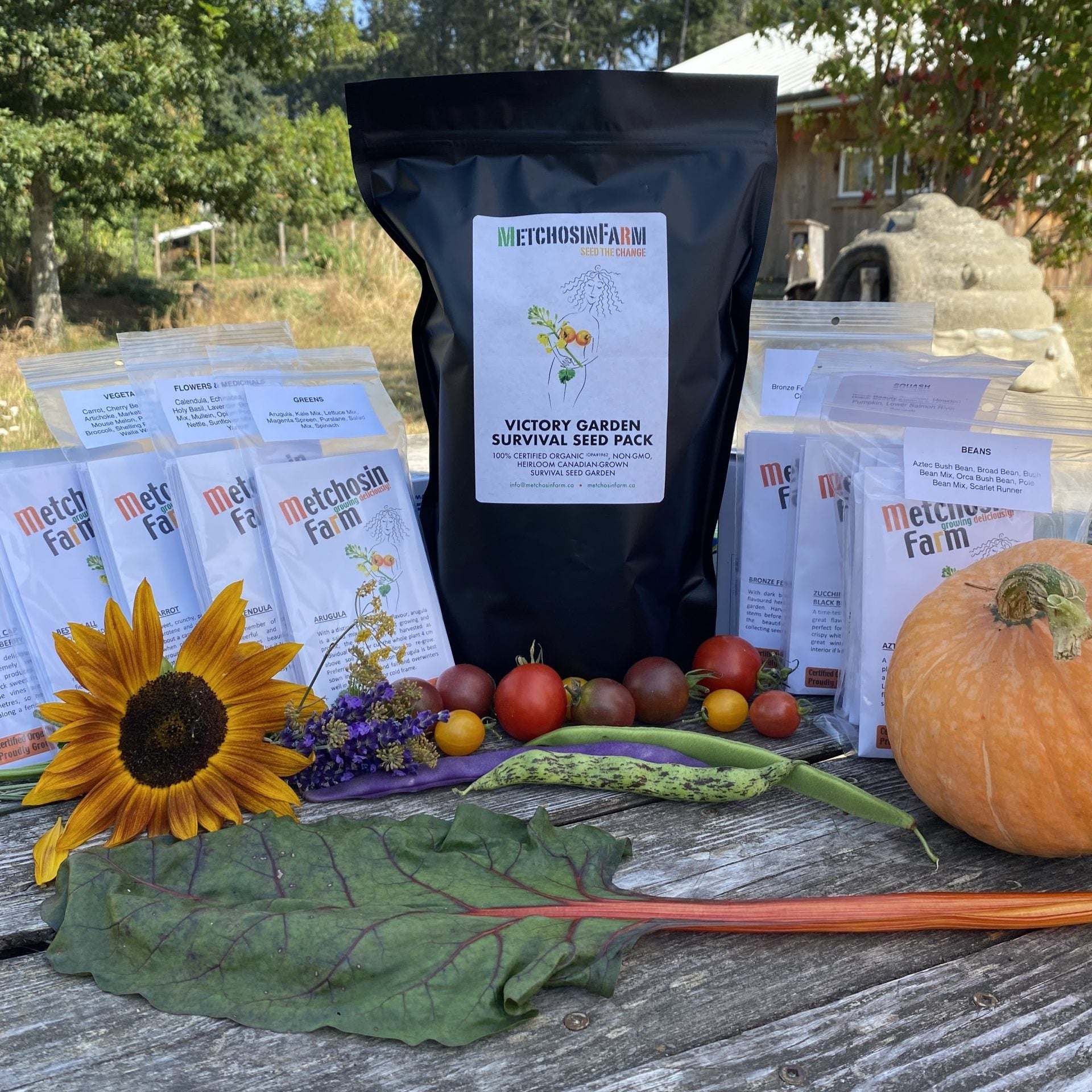
Victory Garden Survival Seed Pack
Our Victory Garden Survival Seed Pack is designed for both abundance and resilience. Unlike other survival kits, every seed here is home-grown on our certified organic farm—no imports, no industrial genetics—so you get the freshest, longest-lasting open-pollinated varieties available anywhere. We’ve chosen each for ease of growing, high nutritional content, traditional medicinal uses, and the power to nourish body and spirit in challenging times. From hearty grains and staples to flowers that boost morale and herbs that soothe and flavour, this collection equips you for self-reliance and seed security.
Where Can You Grow
Adaptable to backyard plots, raised beds, containers, or larger market gardens. Ideal for Coastal BC (Zones 7–9) but suitable across Zones 2–9 with appropriate timing and protection. Plant in fertile, well-drained soil; amend with compost; and use row covers or mulches in cooler climates.
History and Historical Uses
This pack honours the Victory Garden tradition of WW I & II—home gardens that freed up commercial food supplies—while championing modern seed sovereignty. It includes:
Beans & Pulses for protein and nitrogen-fixing (Broad Bean, Scarlet Runner, Pole & Bush Bean Mix)
Grains & Pseudo-grains for carbohydrate staples (Painted Mountain Corn, Hulless Oats, Golden Flax)
Berries & Fruits for vitamins and antioxidants (Black Cap Raspberry, Sunberry, Goldenberry, Minnesota Midget Melon)
Vegetables selected for yield and ease (Carrot, Tomato Mix, Cucumber, Broccoli, Peas, Leek, Squash, Greens, Hot Peppers.
Herbs & Medicinals to flavour, heal, and soothe (Chamomile, Holy Basil, Echinacea, Feverfew, Lavender, Yarrow, Catnip and more)
Flowers that attract pollinators, aid pest control, and uplift spirits (Calendula, Sunflower Mix, Mullein, Bush Marigold, Poppy Mix, Stinging Nettle, Tobacco)
Canadian Zone Information
Zones 2–9: Direct-sow most vegetables, flowers, and herbs after last frost; start brassicas, tomatoes, and perennials indoors 6–8 weeks before last frost or in autumn for overwintering.

How to Grow and Harvest
Sowing: Plant grains and legumes 1–2 in deep; small seeds (herbs, flowers, greens) ¼ in deep.
Spacing & Support: Follow packet recommendations; provide trellises for beans and tomatoes; hill squash and corn; cage tomatoes.
Maintenance: Weed regularly; side-dress with compost; attract beneficial insects with flowering strips.
Harvest: Pick vegetables at peak maturity; cut flowers and herbs before full bloom for drying; shell and dry grains and legumes in a warm, ventilated area.
Seed Saving Tips for Future Supply
Isolation: Observe basic distances (e.g., corn 20 ft, brassicas 20 ft, beans 3 ft, flowers/herbs 3 ft) to maintain purity.
Collection: Let select plants overwinter or mature to seed; harvest dry pods, heads, or berries.
Processing & Storage: Thresh or rub seeds free of chaff; winnow; store thoroughly dry seeds in airtight containers in a cool, dark place—never freeze.
Certified Organic By
Islands Organics Producers Association (Cert#1962)
